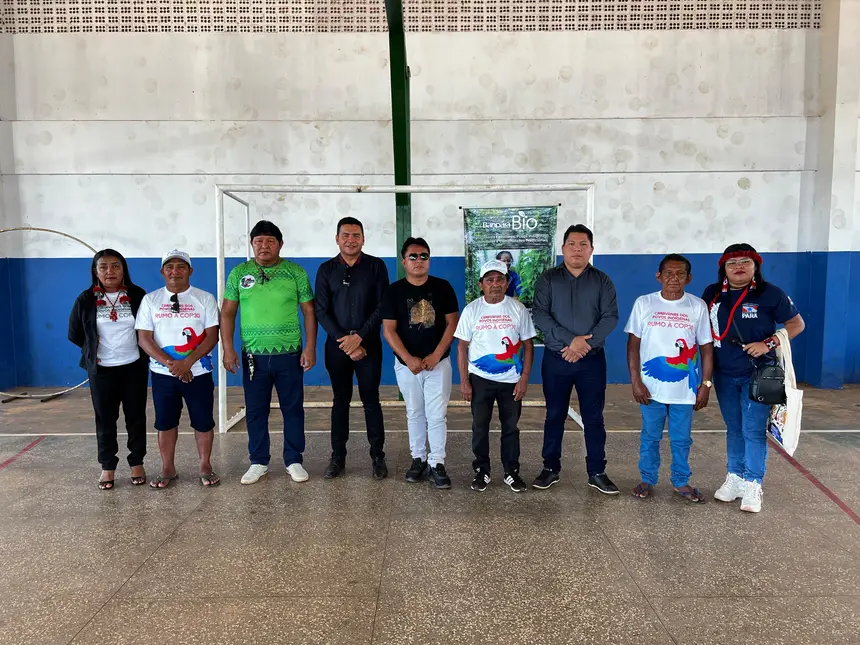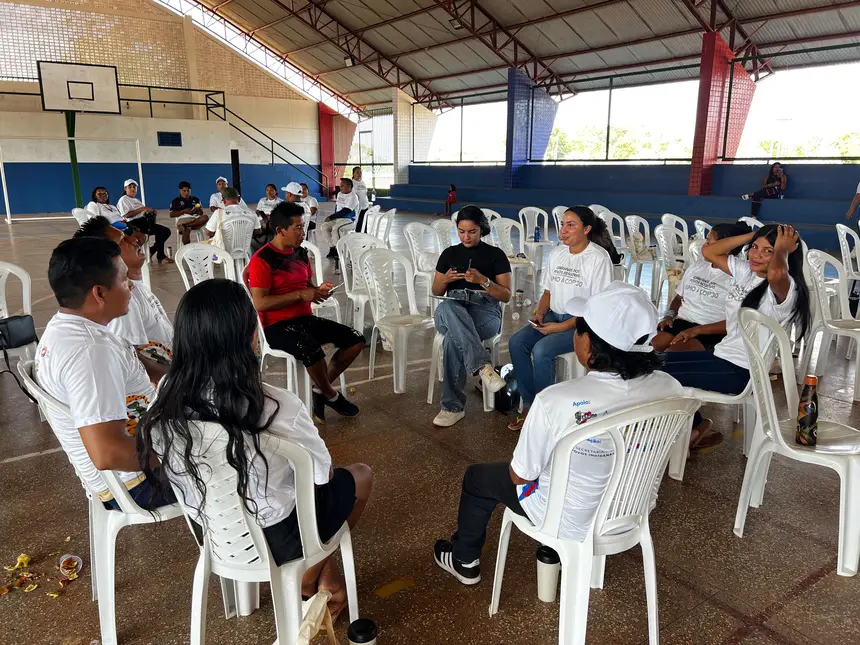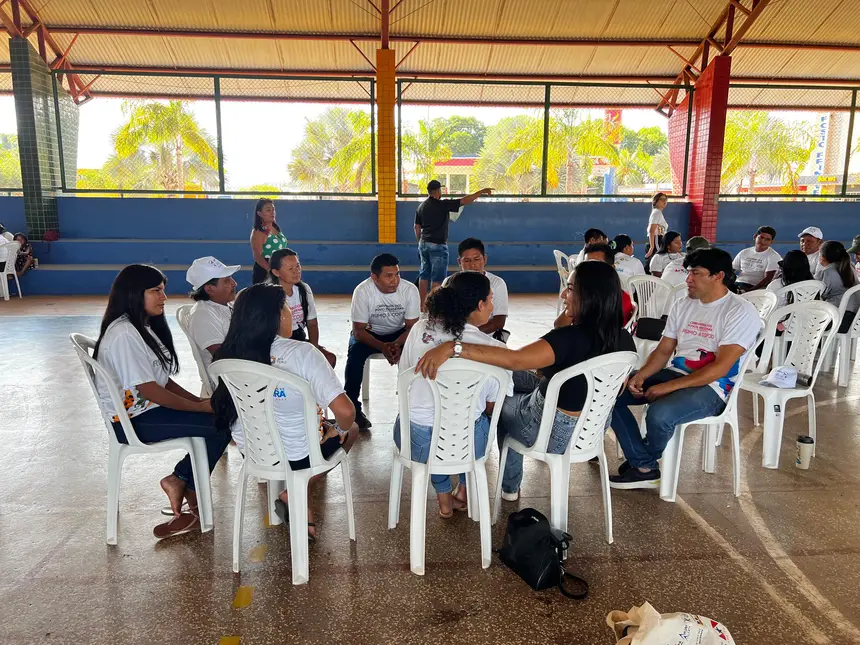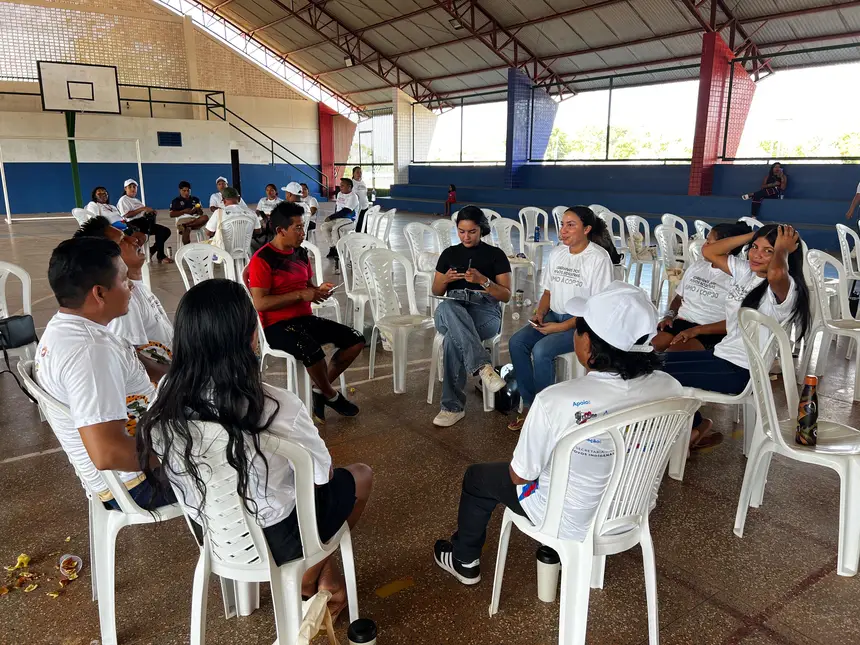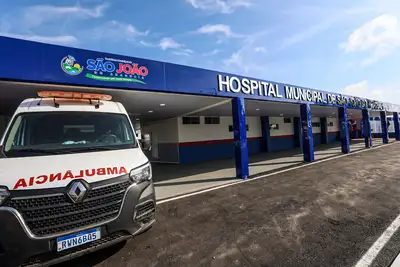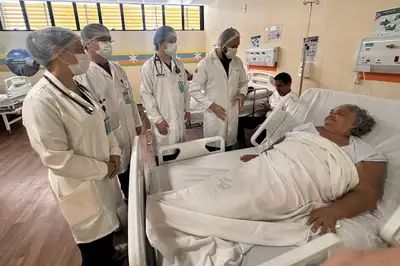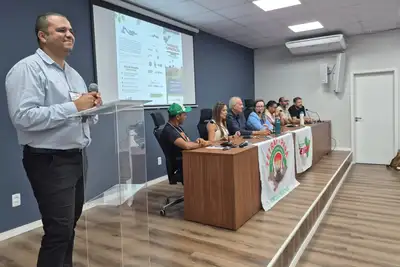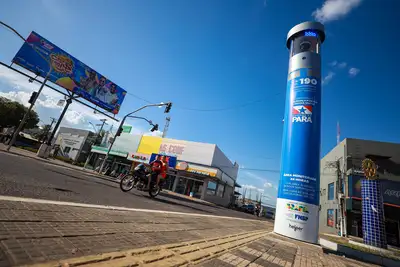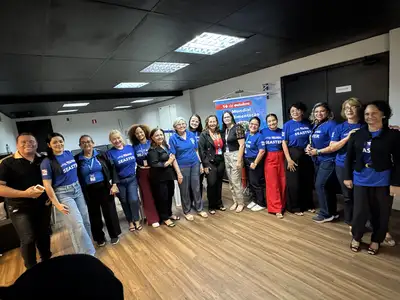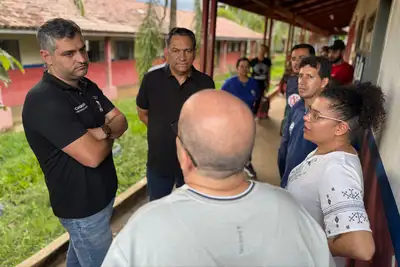Caravan strengthens dialogue with indigenous leaders in the ethno-region of Jacareacanga and Itaituba
Mobilization promoted by the Government of Pará reinforces the protagonism of indigenous peoples in the climate agenda and forest defense
The municipality of Jacareacanga, in the southwest of Pará, experienced a historic moment with the arrival of the Indigenous Peoples Caravan towards COP30, held at Quadra Ludeilson Baía. The action is part of the state government's preparations for the 30th United Nations Conference on Climate Change (COP30), which will take place in November in Belém, and consolidates indigenous participation in discussions about the climate agenda and the defense of the Amazon.
The Caravan is promoted by the Government of Pará, through the State Secretariat for Indigenous Peoples (Sepi), in partnership with the Federation of Indigenous Peoples of Pará (Fepipa) and with the support of the Bank of the State of Pará (Banpará). In the ethno-region of Jacareacanga and Itaituba, the meeting brought together representatives from nine indigenous lands: Munduruku, Praia do Mangue, Praia do Índio, Kayabi, Sai-Cinza, Daje Kap Ap, Sawre Bapi’n, Sawre Jaybu, and Sawre Maybu. Leaders from the Munduruku and Apiaká peoples participated, as well as representatives for the protection of isolated peoples living in the region.
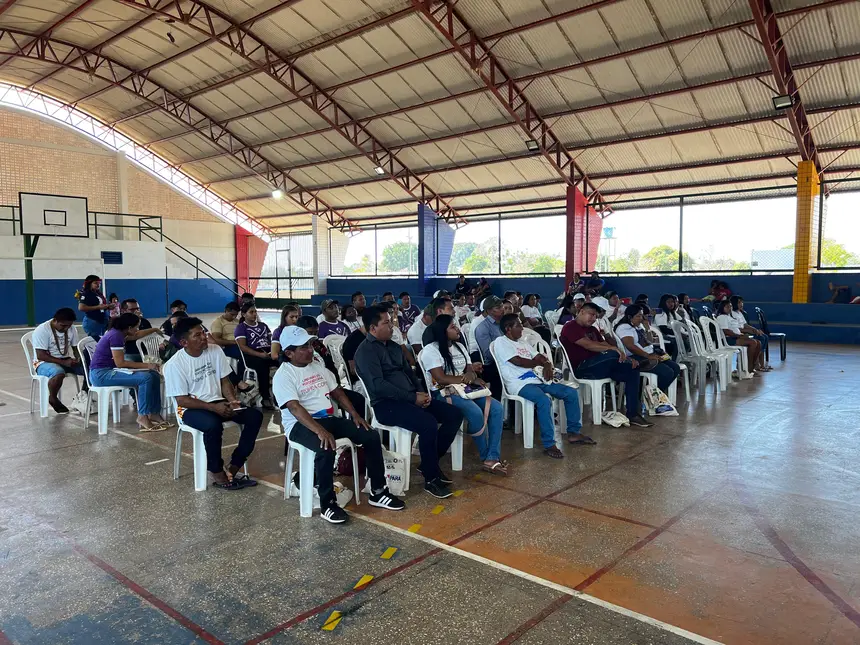
Listening, dialogue, and protagonism - The Caravan promoted discussion circles, workshops, and territorial listening sessions, aiming to hear the demands of the communities, present the pathways to COP30, and strengthen indigenous participation in strategic decisions regarding climate, territory, and social rights.
“Reaching the ethno-region of Jacareacanga and Itaituba has a profound meaning. Here we find peoples who have protected the forest for centuries, and who today are helping to write a new chapter for Pará and the world. This Caravan is about listening, dialoguing, and ensuring that indigenous voices are heard at COP30,” highlighted Puyr Tembé, Secretary of State for Indigenous Peoples.
Voices from the territories - Leaders emphasized that the climate crisis is a reality already felt in the villages, and that COP30 will be an opportunity to give visibility to the solutions that come from the forest.
“For us, the climate crisis is a very important issue. The impact of climate change is very significant, especially regarding land, where rivers are changing course, and also concerning food. The forest is getting very hot, and the water, which used to flow strongly, is now decreasing. Our territory is complex, and therefore we need urgent attention and actions,” said Gilmar Tupi, an indigenous leader.
The pedagogical importance of the Caravan was also highlighted by the Fepipa organizer, who acts as a partner of Sepi in the process of indigenous mobilization in the State. “We have been here learning in this moment, which is very important for our leaders to better understand what COP30 really is. Much is said, but no one had really explained what this conference represents and its importance for the protection of our territories. Especially for our youth, for future generations, for whom we fight so hard to ensure that our territory continues to exist and resist. That is why this Caravan within our territory is so important,” explained Diana Munduruku, Fepipa organizer.
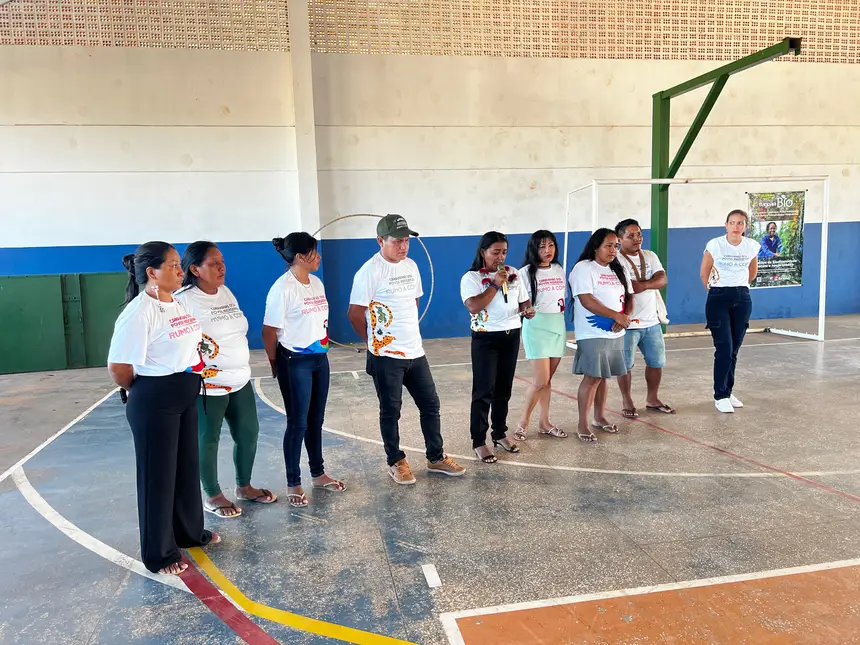
Defense of the Amazon - The ethno-region of Jacareacanga and Itaituba is strategic for environmental conservation and the protection of isolated peoples, housing areas of great biodiversity and extensive indigenous lands. With the Caravan, Sepi brought qualified information and political articulation to the villages, ensuring that the peoples who protect the forest are prepared for COP30.
The initiative is part of the cycle of visits to the eight indigenous ethno-regions of Pará. The Caravan has already traveled through several territories and will continue throughout the State in preparation for the climate conference.



